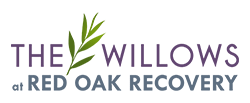If you’re a woman dealing with drug or alcohol dependency, and you also have a behavior disorder, you have a dual diagnosis. Co-occurring issues are not uncommon, but it can complicate the treatment process.
To provide you the best results, you need to find an effective co-occurring disorder treatment that addresses both of your conditions at the same time. Before you seek treatment, it’s essential to know some of the most common co-occurring disorders for women. To learn more about our dual diagnosis treatment programs, contact the Willows at Red Oak today at 855.773.0614.
Depression and Alcoholism
One of the most common co-occurring issues for women is alcoholism and depression. It’s so common it’s likened to the chicken and egg analogy because people usually wonder which of these issues developed first.
These two co-occurring disorders go hand in hand because, in most patients, depression is the significant condition that drives them to abuse alcohol, or any other substance, as a coping mechanism. Others develop alcoholism or drug addiction and start to begin experiencing the symptoms of depression because of their heavy intake. Either way, when someone is affected by these co-occurring issues, they need co-occurring disorder treatment.
Usually, people with these two disorders experience symptoms that include:
- Social withdrawal
- Irritability
- Excessive sleepiness
- Appetite changes
Post-Traumatic Stress Disorder and Opioid Addiction
People who are experiencing post-traumatic stress disorder (PTSD) have a higher risk of being addicted to opioids. PTSD develops after a person experiences one or more traumatic events caused by experiences such as:
- Death of a loved one
- Natural disaster
- Sexual abuse
- War
- Terrorism
Despite affecting millions of people, not many people who have PTSD get the right professional treatment that they need to manage their symptoms effectively. Instead of seeking help from a medical professional, some women may turn to painkillers to block out their flashbacks and unwanted thoughts. Women who are grappling with PTSD are also more prone to engaging in self-destructing behaviors like abusing opioids.
Anxiety and Prescription Drug Addiction
Anxiety is one of the most common mental conditions in the US. Many women who have anxiety also experience symptoms such as palpitations, poor concentration, unwanted thoughts, and inability to relax, among many others.
All these symptoms can be so powerful that the affected individuals may turn to medications to calm them. Prescription drugs such as Valium and Xanax can treat anxiety, but they can also be very addictive. When someone is experiencing anxiety to the point where they cannot manage it anymore, these two co-occurring issues may start to develop.
Psychosis and Meth Addiction
Meth is a synthetic stimulant that is one of the most dangerous drugs on the market. Meth is so destructive because it can dramatically change the way your brain functions.
Women who abuse meth have a higher chance of developing a mental illness such as psychosis. This condition causes hallucinations, anger, delusions, and suicidal thoughts, among other dangerous effects. The most effective co-occurring disorder treatment for these two co-occurring issues involves the cessation of meth use. However, it’s important to note that many women may still experience permanent psychosis even if they stop abusing meth.
The Willows at Red Oak Recovery Can Help You Treat Co-Occurring Issues
Here at The Willows at Red Oak Recovery, we offer specially designed treatment programs for women with co-occurring issues. In our programs, patients can expect to receive individualized care for their conditions. With the expertise of our team of professionals who specialize in dual diagnosis, the rate of success and long-term sobriety is achievable. Our dual diagnosis treatment programs include:
- Depression treatment
- Anxiety treatment
- PTSD treatment
- Disordered eating treatment
- Bipolar disorder treatment
If you or a loved one is battling a co-occurring disorder, contact the Willows at Red Oak at 855.773.0614.






